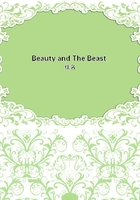
第8章 BEAUTY AND THE BEAST.(8)
"You have been very kind, sir, and I thank you," she said; "but Iam now able to go home without your further assistance.""By no means, lady!" said the Prince. "The streets are rough, and here are no lamps. If a second accident were to happen, you would be helpless. Will you not allow me to protect you?"She looked him in the face. In the dusky light, she saw not the peevish, weary features of the worldling, but only the imploring softness of his eyes, the full and perfect honesty of his present emotion. She made no further objection; perhaps she was glad that she could trust the elegant stranger.
Boris, never before at a loss for words, even in the presence of the Empress, was astonished to find how awkward were his attempts at conversation. She was presently the more self-possessed of the two, and nothing was ever so sweet to his ears as the few commonplace remarks she uttered. In spite of the darkness and the chilly air, the sled seemed to fly like lightning. Before he supposed they had made half the way, she gave a sign to the istvostchik, and they drew up before a plain house of squared logs.
The two lower windows were lighted, and the dark figure of an old man, with a skull-cap upon his head, was framed in one of them. It vanished as the sled stopped; the door was thrown open and the man came forth hurriedly, followed by a Russian nurse with a lantern.
"Helena, my child, art thou come at last? What has befallen thee?"He would evidently have said more, but the sight of Prince Boris caused him to pause, while a quick shade of suspicion and alarm passed over his face. The Prince stepped forward, instantly relieved of his unaccustomed timidity, and rapidly described the accident. The old nurse Katinka, had meanwhile assisted the lovely Helena into the house.
The old man turned to follow, shivering in the night-air. Suddenly recollecting himself, he begged the Prince to enter and take some refreshments, but with the air and tone of a man who hopes that his invitation will not be accepted. If such was really his hope, he was disappointed; for Boris instantly commanded the istvostchik to wait for him, and entered the humble dwelling.
The apartment into which he was ushered was spacious, and plainly, yet not shabbily furnished. A violoncello and clavichord, with several portfolios of music, and scattered sheets of ruled paper, proclaimed the profession or the taste of the occupant. Having excused himself a moment to look after his daughter's condition, the old man, on his return, found Boris turning over the leaves of a musical work.
"You see my profession," he said. "I teach music?""Do you not compose?" asked the Prince.
"That was once my ambition. I was a pupil of Sebastian Bach.
But--circumstances--necessity--brought me here. Other lives changed the direction of mine. It was right!""You mean your daughter's?" the Prince gently suggested.
"Hers and her mother's. Our story was well known in St. Petersburg twenty years ago, but I suppose no one recollects it now. My wife was the daughter of a Baron von Plauen, and loved music and myself better than her home and a titled bridegroom. She escaped, we united our lives, suffered and were happy together,--and she died.
That is all."
Further conversation was interrupted by the entrance of Helena, with steaming glasses of tea. She was even lovelier than before.
Her close-fitting dress revealed the symmetry of her form, and the quiet, unstudied grace of her movements. Although her garments were of well-worn material, the lace which covered her bosom was genuine point d'Alencon, of an old and rare pattern. Boris felt that her air and manner were thoroughly noble; he rose and saluted her with the profoundest respect.
In spite of the singular delight which her presence occasioned him, he was careful not to prolong his visit beyond the limits of strict etiquette. His name, Boris Alexeivitch, only revealed to his guests the name of his father, without his rank; and when he stated that he was employed in one of the Departments, (which was true in a measure, for he was a staff officer,) they could only look upon him as being, at best, a member of some family whose recent elevation to the nobility did not release them from the necessity of Government service. Of course he employed the usual pretext of wishing to study music, and either by that or some other stratagem managed to leave matters in such a shape that a second visit could not occasion surprise.
As the sled glided homewards over the crackling snow, he was obliged to confess the existence of a new and powerful excitement.
Was it the chance of an adventure, such as certain of his comrades were continually seeking? He thought not; no, decidedly not. Was it--could it be--love? He really could not tell; he had not the slightset idea what love was like.
VI.
It was something at least, that the plastic and not un-virtuous nature of the young man was directed towards a definite object.
The elements out of which he was made, although somewhat diluted, were active enough to make him uncomfortable, so long as they remained in a confused state. He had very little power of introversion, but he was sensible that his temperament was changing,--that he grew more cheerful and contented with life,--that a chasm somewhere was filling up,--just in proportion as his acquaintance with the old music-master and his daughter became more familiar. His visits were made so brief, were so adroitly timed and accounted for by circumstances, that by the close of Lent he could feel justified in making the Easter call of a friend, and claim its attendant privileges, without fear of being repulsed.